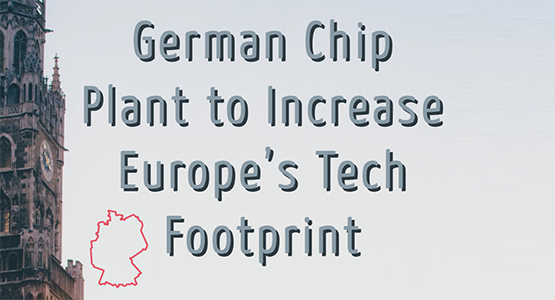How the Chip Deal Between Intel and the German Government Will Benefit Europe

Just this week, the German government signed an agreement with the U.S. company, Intel, to build two chip manufacturing sites. This deal is one of the largest in Intel’s history, with a spend of over €30 billion and will significantly expand Europe’s tech footprint. The German government pledged to cover a third of the initial investment, as both manufacturing sites will be located in Magdeburg. Though this deal will need final approval from the European Union’s executive branch, it looks extremely promising and is estimated to start production by 2028.
Chip Shortages and Lead Times
Those in the technology, automobile, and manufacturing industries know the struggles that has come with the global chip shortage. Since the height of the Covid-19 global pandemic, we’ve seen lead times for semiconductors reach upwards of 154 weeks. Europe has been highly vulnerable to this semiconductor shortage, so it’s no surprise that an agreement of this size will be located in Europe.
Strengthening the Semiconductor Industry and Europe’s Tech Footprint
This new semiconductor plant could catapult Europe to the forefront of technology and expand on the already growing tech hub in the UK. Europe has historically lagged behind regions like Asia and the United States in chip manufacturing capacity. The new plant could help address this gap by increasing local production capabilities, fostering innovation, and attracting further investments in the semiconductor sector.
Reducing Europe’s Reliance on Imports
Currently, electronic equipment and components rank as Europe’s second-highest import. With such a heavy reliance on imports for a significant portion of its electronic component needs, building two chip plants in Germany would enhance Europe’s self-sufficiency in chip manufacturing, reducing its dependence on foreign suppliers. This increase in local production capacity could lead to improved supply chain resilience, especially during times of global semiconductor shortages or disruptions.
Global Supply Chain in Europe
A new chip plant would significantly elevate Europe’s position in the global semiconductor supply chain. By increasing domestic production, Europe can play a more significant role in developing and manufacturing advanced chips, strengthening its competitiveness and reducing its reliance on foreign technologies.
Technological Advancement and Economic Growth in Europe
Not only would this chip plant strengthen Europe’s semiconductor industry and significantly leverage its position in the global supply chain, but it would stimulate technological advancements and innovation throughout. Developing advanced semiconductor manufacturing capabilities can lead to creating high-skilled jobs, attracting talent, and fostering research and development activities. This could contribute to long-term economic growth and strengthen Europe’s position in the global technology industry.
Working with an Experienced Company to Ensure On-Time Product Development
Pivot International has over 50 years of bringing electronic products to market. We design and develop our products in a range of industries. We have global teams of engineers that work with our customers to ensure your product is designed on time and within budget. Our global supply chain teams work tirelessly to ensure the fastest lead times for your product’s needs. If you would like to learn more about our product design or global supply chain expertise, contact us today.

